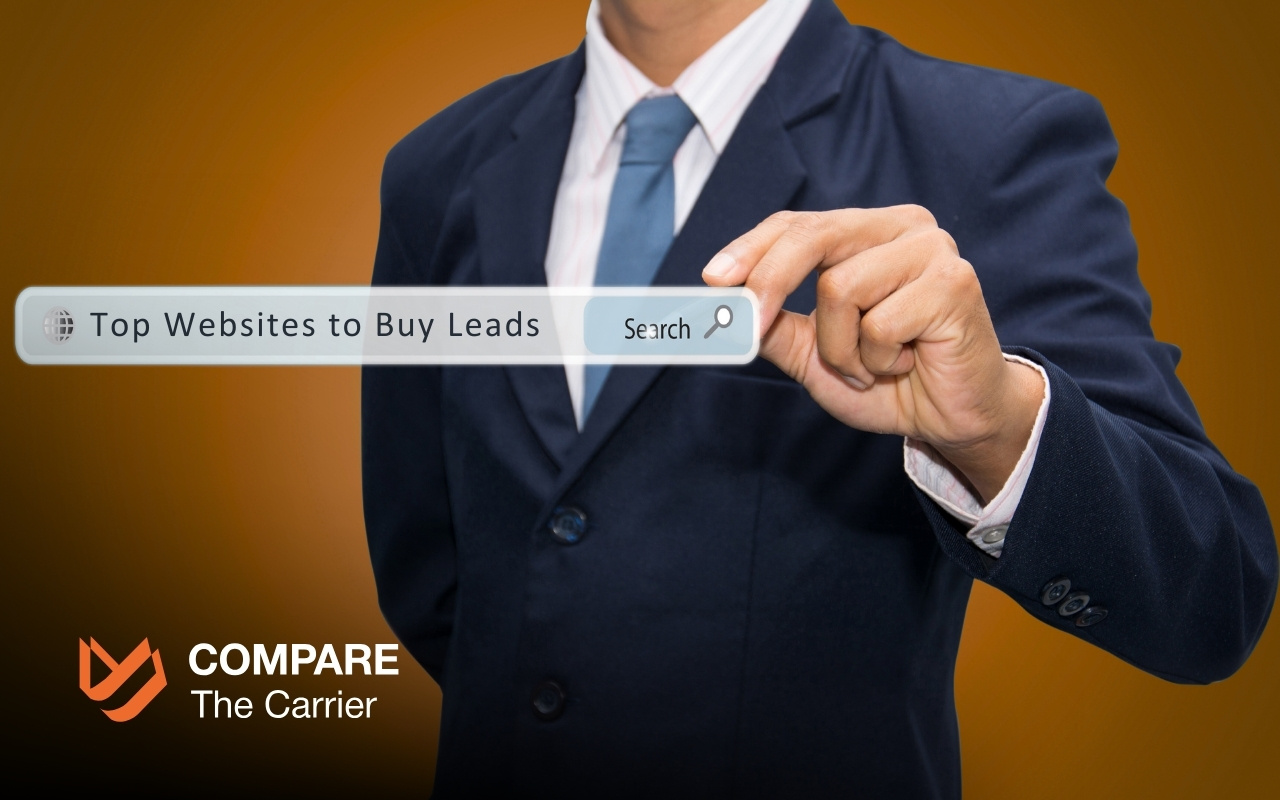Did you know that nearly 70% of marketers actively invest in lead generation? (Demand Gen Report, 2025)
Yet, finding those golden leads – the ones ready to convert – feels like searching for a needle in a haystack. Especially in the fast-moving world of shipping, logistics, and auto transport, where competition is fierce and customer expectations are higher than ever.

That’s where buying leads comes in.
Instead of draining your resources on time-consuming cold calls and endless email blasts, imagine having a pipeline filled with pre-qualified prospects eager to do business. But with so many lead generation platforms out there, how do you know which ones actually deliver?
This guide cuts through the noise. We’ll reveal the top websites to buy leads from in 2026, analyze their strengths and weaknesses, and provide actionable insights to help you optimize your lead acquisition strategy. Plus, we’ll share insider tips on how to maximize your ROI and avoid the dreaded “lead scams” that plague the industry.At Compare The Carrier, we’ve spent years helping businesses like yours navigate the complexities of the logistics landscape. We understand the unique challenges you face, and we’re here to help you find the best lead generation solutions to fuel your growth.
Key Features to Look for in Lead Generation Platforms (and Identifying Lead Scams)
If you’re in the market to buy leads from the best lead generation websites out there, you have to know what sets the winners apart. In 2026, the landscape is hyper-competitive: trucking firms, logistics brokers, and auto transport companies are all vying for the highest-quality B2B leads. With so many options,it’s easy to get stuck paying for junk data or getting tangled in a scam.
Think of it like this: you wouldn’t buy a car without checking under the hood, right? Just like when you’re evaluating your logistics sales pipeline and its marketing challenges, it’s essential to do your due diligence. Same goes for lead generation platforms.
Here’s your checklist for finding the best websites to buy leads from in 2026:
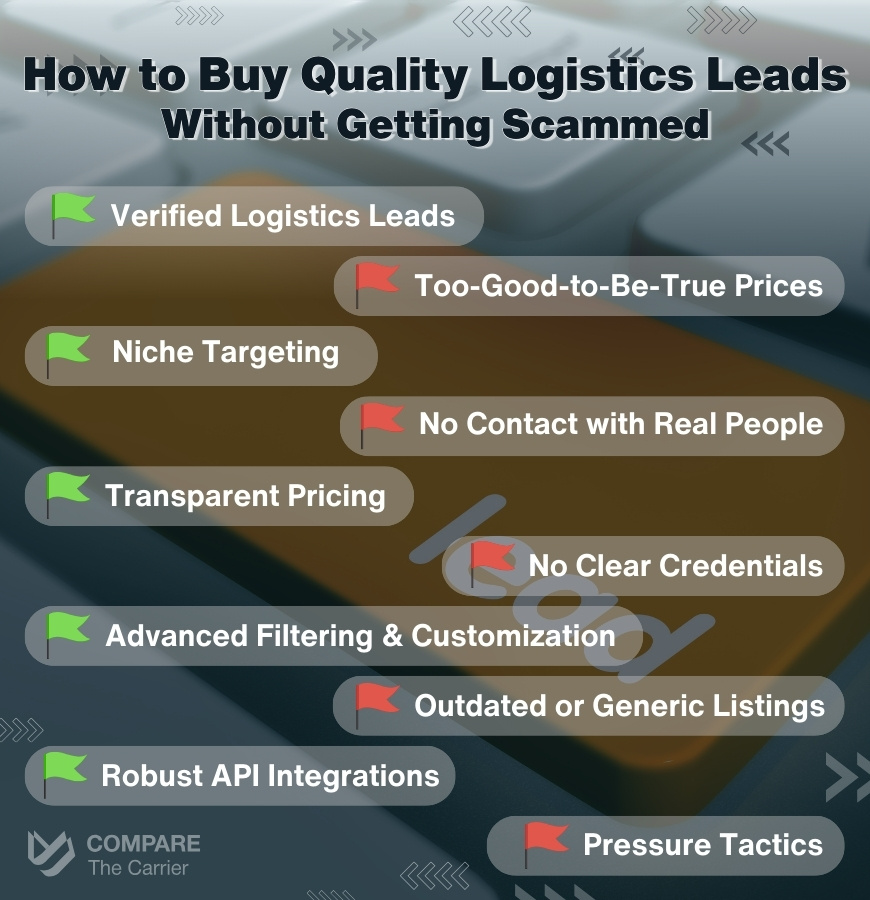
Key Features of Legit Platforms
How to Spot a Lead Scam
For more insights into avoiding shady lead providers, see our feature: The 5 Worst Auto Transport Leads Providers You Should Avoid.
In short, when you’re ready to buy leads—be it general business contacts or niche auto transport lead platforms—focus on established companies with a track record of delivering high-quality B2B lead generation data. Check credentials, look for transparent sourcing, and steer clear of anything that feels too good (or too vague) to be true. The right choice will set you up with a pipeline of logistics leads you can actually close, not just a bloated contact list gathering dust.
And hey, if you’re feeling overwhelmed, don’t hesitate to reach out to the experts at Compare The Carrier. We specialize in helping businesses like yours find the right lead generation solutions, whether it’s through our platform or by building custom lead generation. We’ll work with you to understand your specific needs and recommend the best options to help you achieve your goals.
Top Websites to Buy Leads from in 2026
Between the surge in e-commerce shipments — up 15% in Q2 2025 according to FreightWaves —and tightening federal safety standards tracked by the FMCSA, logistics pros need lead platforms that go beyond generic databases. The best lead generation websites now focus on verified freight networks, transparent pricing, and niche segments like auto transport lead platforms to help you buy leads that actually convert.
Below, we’ve grouped several of the best lead generation websites into pairs or small sets, highlighting their unique advantages. This approach makes it easier to compare and buy leads that really move the needle.
To help select the right platform for your auto transport brokerage, check out our article on choosing the right auto transport load board.
Consumer-Focused Moving Lead Providers (Moving.com & Movers.com)


Both Moving.com and Movers.com connect you directly to households and businesses on the move, delivering consistent, high-intent B2B lead generation opportunities. The American Moving & Storage Association reports that long-distance relocations are expected to surge by 10% in 2026 — meaning these lead funnels aren’t just busy, they’re booming.
Load Boards (DAT Freight & Analytics & Truckstop.com)

DAT and Truckstop.com are industry powerhouses for trucking and freight leads, offering filters by route, cargo type, and rate benchmarks. Both platforms have integrated predictive analytics tools.
In 2025, DAT’s load-to-truck ratio helped carriers optimize routes, reducing empty miles by as much as 12%.
Alternative Load Boards (123Loadboard & Direct Freight Services)


123Loadboard and Direct Freight Services may fly under the radar compared to DAT or Truckstop.com, but they offer niche-specific loads and straightforward pricing. With capacity tightening in several U.S. regions, smaller load boards often spotlight unique opportunities that big-name platforms overlook, according to Transport Topics.
Online Shipping Marketplaces (uShip & Shiply)
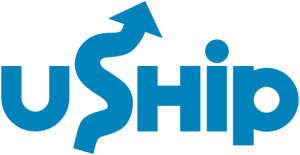

uShip and Shiply connect you to a wide spectrum of shippers—from people moving classic cars to small businesses shipping palettes of equipment.
As the gig economy expands, Shiply has recorded an increase in owner-operators booking loads on-demand. In 2025, they reported a 20% rise in specialty freight quotes.
Freight Marketplaces (Freightos & FreightCenter)

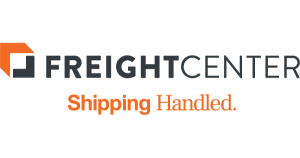
Freightos and FreightCenter streamline global freight quotes. It’s not just about buying leads; it’s about tapping into a global network of importers, exporters, and domestic shippers. As ocean shipping stabilizes post-pandemic, Freightos reported shorter lead times and more transparent pricing, helping shippers fine-tune cost projections.
Auto Transport Lead Platforms (Central Dispatch & Super Dispatch)


Central Dispatch and Super Dispatch are must-haves for auto transport professionals. Both curate verified leads from car dealerships, auctions, and private owners. With Americans shipping millions of vehicles annually, these platforms have streamlined workflows by integrating load tracking and instant messaging features—improving response times and trust.
3PL (Total Quality Logistics)
Total Quality Logistics (TQL) isn’t just a broker—it’s a tech-enabled platform linking you to verified freight leads. They’ve rolled out digital portals where you can easily compare rates, lanes, and service levels.
In 2025, TQL reported a 15% increase in digital bookings, showing that automated load matching and transparent pricing resonate with carriers aiming to simplify their operations.
General B2B Lead & Data Providers (ZoomInfo & D&B Hoovers)

ZoomInfo and D&B Hoovers aren’t logistics specialists at heart, but they provide detailed company intel you can filter by industry, revenue, and region. By 2025, ZoomInfo integrated more granular supply chain and transportation filters, letting you zero in on exactly the type of leads you want—no fluff.
Specialized B2B Data Providers (ThomasNet)

ThomasNet gives you access to curated business databases heavy on manufacturing, industrial sourcing, and supply chain contacts.
ThomasNet’s 2025 Industry Report highlighted a 10% spike in OEM and distributor listings, meaning more rich B2B lead generation opportunities for freight and shipping professionals.
Compare The Carrier (Expert Guidance & Tailored Live Leads)

Compare The Carrier doesn’t just help you buy leads; it offers expert counsel backed by four years of industry experience. We can tailor your logistics leads, ensuring your marketing spend results in high-quality prospects.
With America’s freight market projected to remain robust through 2026, Compare The Carrier’s seasoned approach ensures you cut through the clutter, focusing on leads that fit your exact operational model.
According to a 2026 Logistics Tech Report by Ti Insight, businesses using at least three different lead generation sources saw a 15% higher closing rate than those relying on just one. Translation? Spreading your bets across a few of these platforms could seriously bump up your ROI.
Extra Tip: For more data-driven insights, keep an eye onthe American Trucking Associations and the Bureau of Transportation Statistics to stay informed on rate trends, capacity shifts, and emerging markets. Armed with these resources and platforms, you’ll be well-prepared to buy leads that deliver tangible ROI in 2026.
How to Maximize ROI on Lead Purchases
Alright, you’ve found the perfect platform, and you’re ready to buy leads. Awesome!
But hold your horses – just because you have a list of potential customers doesn’t guarantee a flood of new business. To truly maximize your ROI on those shiny new logistics leads (or auto transport leads, or whatever your niche may be), you need a solid strategy in place.
Here’s how you can ensure that every dollar you spend on leads translates into real business growth:
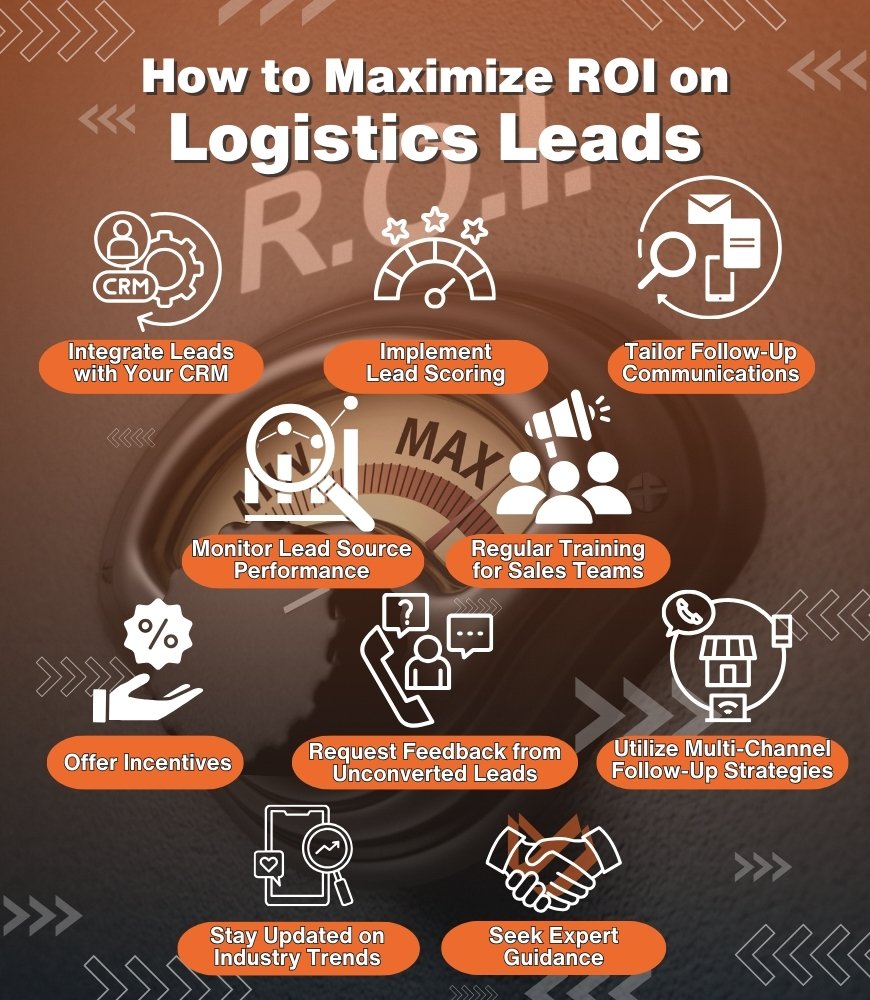
By focusing on these strategies, businesses in the logistics and transportation sectors can not only improve their lead conversion rates but also enhance the overall effectiveness of their marketing spend.
For more comprehensive strategies on converting your leads into profitable engagements, our deep dive into maximizing ROI on logistics leads offers valuable insights.
Remember, buying leads is only the beginning—the real success lies in how well you convert these opportunities into profitable relationships.
Conclusion

Navigating the waters of B2B lead generation requires more than just a keen eye for good deals; it demands a strategic approach tailored to the unique dynamics of the logistics and auto transport sectors.
Whether you’re looking to buy leads from the best lead generation websites or enhance your internal strategies for managing logistics leads, the key is in how effectively you can convert these prospects into loyal customers.
The platforms we’ve explored provide diverse opportunities to connect with high-quality leads tailored to the shipping, freight, and auto transport industries. By applying the right techniques to maximize ROI—like integrating with sophisticated auto transport CRM systems, employing multi-channel communication, and leveraging expert advice—you can ensure that your investment in leads drives substantial business growth.
As the landscape of lead generation continues to evolve, staying informed and agile will be your greatest assets in turning potential into profit.
FAQ
What makes a lead generation website ‘the best’ for logistics leads?
The best lead generation websites for logistics are those that offer highly targeted, verified leads that are specific to the industry’s needs. They should provide tools for detailed segmentation, robust analytics to track lead performance, and features that facilitate easy integration with existing CRM systems.
How much does it cost to buy leads?
The cost of buying leads varies wildly depending on factors like industry, lead quality, platform, and volume. Some platforms offer pay-as-you-go models where you purchase individual leads, while others have subscription plans with monthly fees. Expect to pay anywhere from a few dollars to hundreds of dollars per lead. For those specifically in the auto transport sector, it’s also crucial to be aware of the 5 worst auto transport lead providers you should avoid.
Are bought leads really worth it?
Absolutely, if you choose the right platforms and manage your leads effectively. High-quality leads can significantly shorten your sales cycle and boost your conversion rates. However, it’s essential to invest in platforms that offer accurate, verified leads and to implement a strong lead nurturing strategy.
How do I integrate purchased leads into my existing CRM?
Most reputable lead generation platforms offer easy integration options with popular CRM software. This typically involves exporting the lead data in a compatible format or using APIs that directly sync the data. Platforms like Compare The Carrier assist with lead integration to ensure that the leads are seamlessly incorporated into your existing systems.
What are the red flags to watch out for when buying leads?
Beware of leads sold in bulk without any segmentation or detailed profiles, offers that seem too good to be true, and lead sources that do not provide transparent information about their data collection and verification processes.
